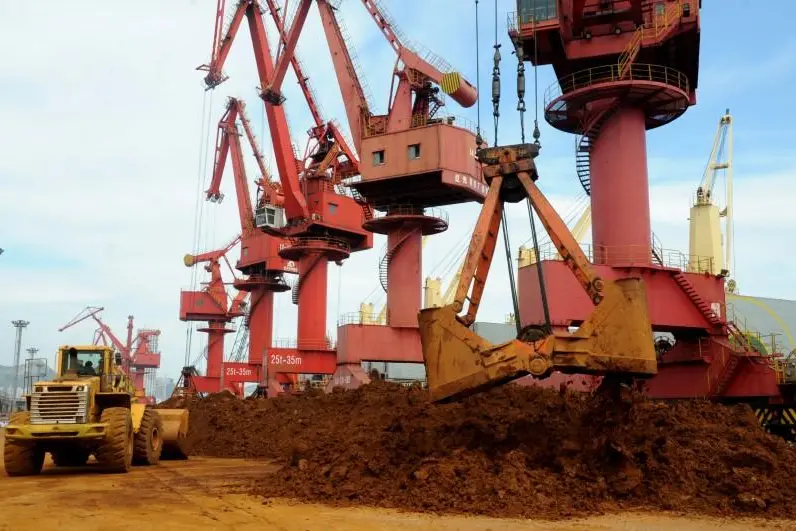PHOTO
Iron ore and steel futures in China, the world's biggest steel producer, fell on Friday as the detection of a new coronavirus variant in South Africa and fresh COVID-19 cases in Shanghai fanned investor concerns about global economic recovery.
The Dalian iron ore benchmark contract, however, was set to mark its first weekly gain since early October, after a five-session rally driven by China's moves to ease a liquidity crunch to help its debt-laden property developers.
The most-active January iron ore contract on the Dalian Commodity Exchange ended daytime trading 6.7% lower at 575.50 yuan ($90.06) a tonne. It has, however, risen 9.5% this week.
On the Singapore Exchange, the steelmaking ingredient's most-traded December contract slumped 5% to $96.95 a tonne by 0705 GMT.
"Markets remain cautious about the outlook for Chinese growth, especially given the zero-COVID strategy with Shanghai yesterday reporting three new cases," said Tapas Strickland, a director of economics at National Australia Bank.
The detection of new cases has prompted the Chinese financial hub to limit tourism activities, while Xuzhou city in the eastern Jiangsu province has reported one locally transmitted asymptomatic carrier who was a close contact of a Shanghai infection.
The discovery of a new coronavirus variant now spreading in South Africa is also adding to worries, analysts said, with Britain warning on Thursday that it could imperil efforts to fight the pandemic.
Construction steel rebar on the Shanghai Futures Exchange dropped 2.5% following a six-session rally, while hot-rolled coil slipped 1.4%, snapping a four-day rally. Stainless steel shed 4.1%.
Dalian coking coal sank 7.3% while coke lost 5.7% after both delivered a four-day rally.
Benchmark 62%-grade iron ore's spot price in China jumped to $106.50 a tonne on Thursday, the strongest since Nov. 1 as demand picked up, according to SteelHome consultancy data.
(Reporting by Enrico Dela Cruz in Manila; Editing by Rashmi Aich and Sherry Jacob-Phillips) ((enrico.delacruz@thomsonsonreuters.com))





















